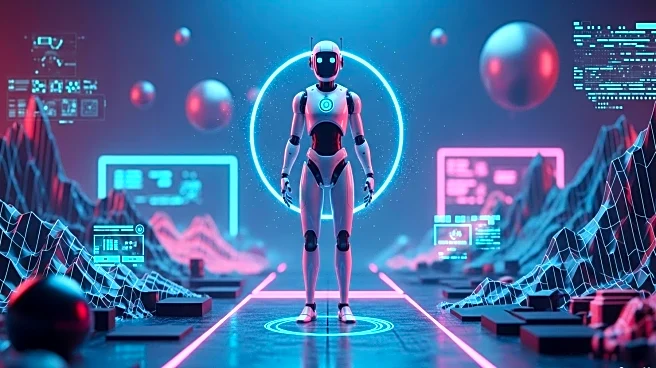What's Happening?
Elon Musk has announced ambitious plans for his xAI studio to release an AI-generated video game and a movie by the end of 2026. Musk stated that the video game, developed using Grok, will be released before the end of next year, while a movie that is 'at least watchable' is expected by the same deadline. Musk's claims have sparked skepticism online, with industry figures questioning the feasibility and impact of AI-generated content. The xAI studio is currently hiring a 'Video Games Tutor' to train Grok in producing engaging video games, highlighting the growing interest in AI's role in entertainment. Musk's predictions align with broader industry trends, as AI is increasingly seen as a transformative tool in game and movie production.
Why It's Important?
The announcement underscores the potential impact of AI on the entertainment industry, particularly in video game and movie production. If successful, Musk's initiative could revolutionize content creation, allowing smaller teams to produce high-quality games and films. However, industry experts caution that AI cannot replace the human touch necessary for creative leadership and vision. The development also raises concerns about copyright infringement, as generative AI tools have previously faced legal challenges. The broader implications of AI in entertainment could lead to new genres and experiences, but also pose ethical and legal questions about creativity and intellectual property.
What's Next?
As xAI progresses with its plans, the industry will closely watch for developments in AI-generated content. Stakeholders, including game developers and filmmakers, may react by exploring AI's potential while addressing challenges related to creativity and copyright. The success or failure of Musk's initiative could influence future investments in AI technology within entertainment. Additionally, regulatory bodies may need to consider new frameworks to address the legal implications of AI-generated works. The outcome of Musk's project could set a precedent for how AI is integrated into creative industries.
Beyond the Headlines
The ethical dimensions of AI-generated content are significant, as the technology challenges traditional notions of authorship and creativity. The reliance on AI for content creation may lead to debates about the value of human input versus algorithmic efficiency. Furthermore, the potential for AI to democratize content production could shift power dynamics within the industry, allowing smaller creators to compete with established studios. However, this democratization must be balanced with safeguards to protect intellectual property rights and ensure fair compensation for creators.











